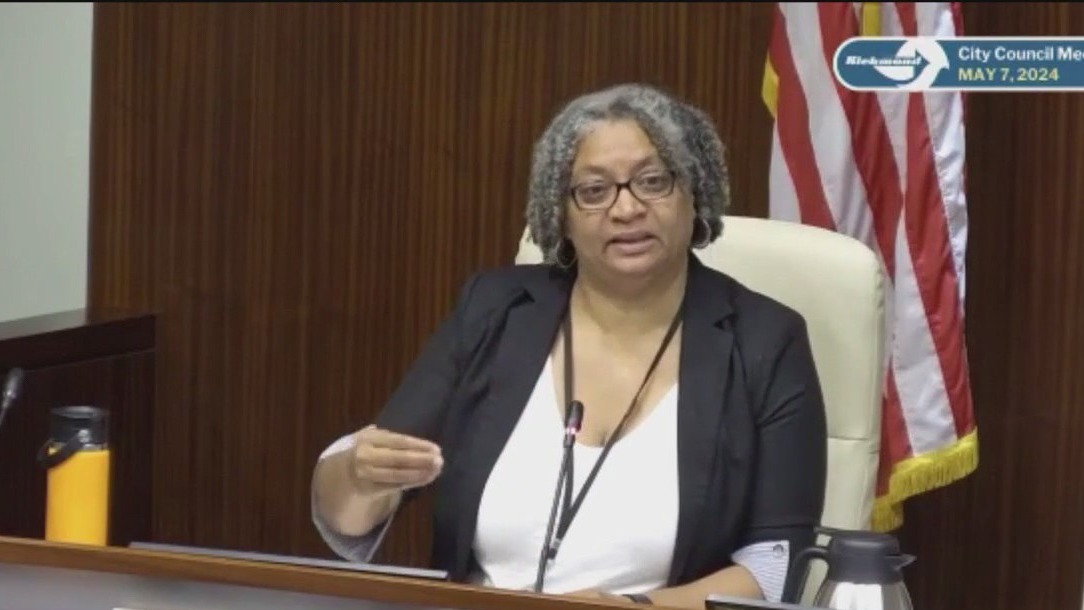California
Should I put my fiancé’s name on the deed to my California home after we marry?

I am writing to you after reading your article titled, “I met my wife in 2019 and we married in 2020. I put her name on the deed of my $998,000 California home. Now I want a divorce. What can I do?” You have deemed this situation a “cautionary tale” for other readers who commingle finances too quickly with the wrong person.
I am happy to say that I am not in this situation as of yet. I am a 30-year-old female who has recently become a first-time homeowner with the help of my family.
I have been engaged to a 30-year-old male for the past six and a half years. We have been living together for the past five years. I am the only one working right now making about $83,000 a year. My fiancé is a graduate student working toward his master’s degree in a special-education teaching credential. He will be guaranteed full-time work after a year from his program as a special-education teacher.
“‘Only my name and my father’s name is on the deed of the house because he provided the down payment for this house.’”
Right now, my fiancé’s name is not on the deed of the house. We also keep separate bank accounts, and have no joint accounts. Only my name and my father’s name is on the deed of the house because he provided the down payment for this house.
My fiancé is in complete agreement that his name will not go on any loans or deeds until he financially contributes to the mortgage payments (I am paying the full mortgage each month). When that time comes, I think it is fair that his name should go on the loan as well as the deed.
I wanted to reach out to you for any advice you have to offer regarding my financial situation before we legally commingle our finances. We will not be married for at least another two years, and as we approach our wedding date (not yet set), we plan to do premarital counseling as well as draft prenuptial agreements to sign. If there is an option to do premarital financial counseling, I would be open to that as well.
Covering my Bases in California
“Don’t make any decisions under pressure.”
MarketWatch illustration
Dear Covering,
There’s a lot of positive signs about the future of your relationship in your letter. You’ve had a very long engagement, and you have been living together for five years, and you are supporting your fiancé while he is finishing his studies. It may be that you eventually decide to have a family together, and this home will be where you create all those memories that you will look back on in 30 years time. However, I also urge you to proceed slowly.
First of all, it would not currently make financial sense to add your future husband’s name to the deed. You certainly don’t want to refinance your mortgage when the 30-year fixed rate is approaching 8%, assuming your rate is far lower. You will end up paying hundreds of dollars more per month to live in your home. You can love each other, fight, compromise, make sure your voice is heard far more easily if you both have your financial independence.
As for putting his name on the deed and the mortgage, it’s not a good idea to add somebody’s name to the deed of a home and not to the mortgage. That makes very little sense. If you split up — which, although unthinkable, happens to roughly 40% of couples — you would be responsible for the mortgage, while your husband or ex-husband still owns 50% of your property. You cannot take somebody’s name off the deed of a home without their cooperation.
“You certainly don’t want to refinance your mortgage when the 30-year fixed rate is approaching 8%, assuming your rate is far lower.”
There are arguments in favor of putting your future spouse’s name on the deed of the house. If you were to predecease your future husband, the house would not then have to go through probate. It also means that if you or your spouse got into debt, creditors would be unable to make a claim on your jointly owned property.
California is a community-property state, so all assets and earnings acquired during the marriage are generally considered community/marital property, and typically split 50/50 in the event of a divorce. Assets acquired before the marriage — in this case, your home — are considered separate property, although your husband may still be entitled to 50% of the acquired value during your marriage.
Engage in premarital financial counseling, and seek your own advice from a family-law attorney, and your father. It may be that you start by signing a prenuptial agreement stating that — in the event of a divorce — you split the house in accordance with the amount of money you each invested in the property, adjusting that sum for the increase in value from the time your future husband’s name is put on the deed. Don’t make any decisions under pressure.
You have taken your time with your engagement, and you can take your time with this. Good luck with your wedding — and I wish you a lifetime of happy memories with your marriage. Take it one step, vow and contract signing at a time. Parents rarely do anything by accident. So remember — given that your father’s name is on the deed — whatever you decide you will need his permission too.
You can email The Moneyist with any financial and ethical questions at qfottrell@marketwatch.com, and follow Quentin Fottrell on X, the platform formerly known as Twitter.
Check out the Moneyist private Facebook group, where we look for answers to life’s thorniest money issues. Post your questions, tell me what you want to know more about, or weigh in on the latest Moneyist columns.
The Moneyist regrets he cannot reply to questions individually.
Previous columns by Quentin Fottrell:
‘They do not trust her, nor do I’: My elderly parents fear my sister will empty their bank accounts and steal their possessions. What can we do?
‘It feels like a nightmare’: My siblings hid our father’s will, which would have left me $135,000. What can I do?
‘I am watching my inheritance evaporate’: My brother and sister constantly hit our parents up for money. What can I do to stop this?

California
California regulators to vote on changing how power bills are calculated
SACRAMENTO, Calif. (AP) — California regulators on Thursday are likely to change how some power companies calculate their customers’ bills, a decision that would make it less expensive for people to charge electric cars and cool their homes in the summer but would increase prices for those who don’t use as much energy.
The California Public Utilities Commission will vote on whether to let the state’s big investor-owned utilities — including Pacific Gas & Electric — add a fixed charge to people’s power bills each month. For most people, the charge would be $24.15 per month and would pay for such things as installing and maintaining the equipment necessary to transmit electricity to homes. Residents with lower incomes who are enrolled in one of two discount programs would pay less, either $6 or $12 per month.
In exchange for the new charge, the price of electricity would drop by between 5 cents and 7 cents per kilowatt hour. One kilowatt hour is how much power it takes to use a 1,000-watt appliance — a coffee maker or vacuum cleaner, for instance — for one hour.
For people who use a lot of energy each month, this could could lower their monthly bills. People who live in Fresno — where temperatures can often exceed 100 degrees Fahrenheit (37.8 degrees Celsius) — would save about $33 running their air conditioners during the summer, according to the commission. That’s because the savings they would get from the price drop on electricity would be more than the amount they pay for the new fixed charge.
It would also benefit people who own electric cars and use other electric appliances, such as heat pumps. They would save an average of between $28 and $44 per month, according to the commission. In 2022, California accounted for 37% of the nation’s light-duty electric vehicles, or about six times more than Florida, the state in second place, according to the U.S. Energy Information Administration.
“The new billing structure more evenly allocates fixed costs among customers and will encourage customers to adopt electric vehicles and replace gas appliances with electric appliances because it will be less expensive,” Administrative Law Judge Stephanie Wang wrote in a proposed decision explaining the charge.
For people who don’t use as much energy, the new fixed charge could increase their bill each month. This includes people who live in smaller apartments or who live in cooler areas and don’t use air conditioning as much. That’s because for them, the decrease in the price of electricity would not be enough to offset the amount of the new monthly charge.
Opponents argue it would act as a disincentive to conserve energy, something California has been urging people to do.
“If you wanted to design a policy instrument that would send the signal that conservation doesn’t count, this would be it,” said Ken Cook, president of the Environmental Working Group.
Most states already have fixed monthly charges on utility bills to pay for maintenance and infrastructure of the electric grid. But in California — where electric rates are among the highest in the nation — any move that could increase prices for anyone raises alarms among consumers and elected officials.
A group of 18 members of Congress from California have called on the commission to keep the rate low, noting the national average for fixed charges on utility bills is $11. Some Democrats and Republicans in the state Legislature have backed a bill that would cap the charge at $10 per month.
“We must do more to rein in the ever-growing cost of living in our state, not find new ways to add to it,” Republicans in the California Senate wrote in a letter urging the commission to reject the proposal.
The proposal is much lower than what the state’s investor-owned utility companies had asked for, which was a charge between $53 and $71 per month. The commission also argues the charge would not discourage conservation, noting utilities are already allowed to increase rates during peak hours.
California
California gets moisture, needs warmth – Brownfield Ag News

News
California gets moisture, needs warmth
An atmospheric scientist says the state that leads the country in fruit and vegetable production has recovered from drought but has a different threat to this year’s crops.
Eric Snodgrass with Nutrien Ag Solutions tells Brownfield California needs warm weather and the accompanying heading degree units so the crops will grow. “Just to think this through, the severe weather event that’s going on right now in the central U.S., that started out this weekend in the west and they had snow all the way down to the foothills of the Sierra Nevadas.”
Snodgrass says the north-south jet stream that is bringing severe storms to the Midwest is also responsible for the chilly air in California. He says the rest of the country is also looking at some cool nights between the 11th and 14th of May, which will also slow down growth there. “We get down there right below that 40 degree line early in the morning, and then sunshine comes out and we kind of break away towards warm. You’re not accumulating a whole lot of GDDs (Growing Degree Days) fast, in other words, as you plant the crop, it’s not like it’s going to emerge in a week. We’re going to have to get that cooler air out.”
Snodgrass says even with the chilly air in the forecast, he’s not expecting a major late frost event that would cause widespread damage to crops. As for moisture, Snodgrass says California had plenty of precipitation in December and January, and again in March and early April.
California
Richmond urges California to cut ties with PG&E

Richmond council urgles California to cut ties with PG&E
Richmond City Council passed a resolution that urges California to cut ties with PG&E
RICHMOND, Calif. – The Richmond City Council on Tuesday night passed a resolution urging California to cut ties with PG&E.
The resolution calls on the state to replace the utility company as California’s main power supplier, citing PG&E’s contributions to wildfires, shut-offs and rate hikes and reasons for the proposed split.
Councilmembers said they support a nonprofit called Golden State Energy to take over.
“We’re saying that ‘We, the city of Richmond, stand behind implementation of something already in place,’” Councilwoman Doria Robinson said.
The letter of support will now be sent to a number of state leaders including Gov. Gavin Newsom.
-

 Politics1 week ago
Politics1 week agoStefanik hits special counsel Jack Smith with ethics complaint, accuses him of election meddling
-

 Politics1 week ago
Politics1 week agoThe White House has a new curator. Donna Hayashi Smith is the first Asian American to hold the post
-

 Politics1 week ago
Politics1 week agoAnti-Trump DA's no-show at debate leaves challenger facing off against empty podium
-

 News1 week ago
News1 week agoAs student protesters get arrested, they risk being banned from campus too
-

 News1 week ago
News1 week agoVideo: Police Arrest Columbia Protesters Occupying Hamilton Hall
-

 World1 week ago
World1 week agoNine on trial in Germany over alleged far-right coup plot
-

 World1 week ago
World1 week agoStrack-Zimmermann blasts von der Leyen's defence policy
-

 Politics1 week ago
Politics1 week agoNewsom, state officials silent on anti-Israel protests at UCLA



:quality(70):focal(2000x1990:2010x2000)/cloudfront-us-east-1.images.arcpublishing.com/shawmedia/E3DDLQXGBRAF7BX2L2DH3Y6DKY.jpg)
















